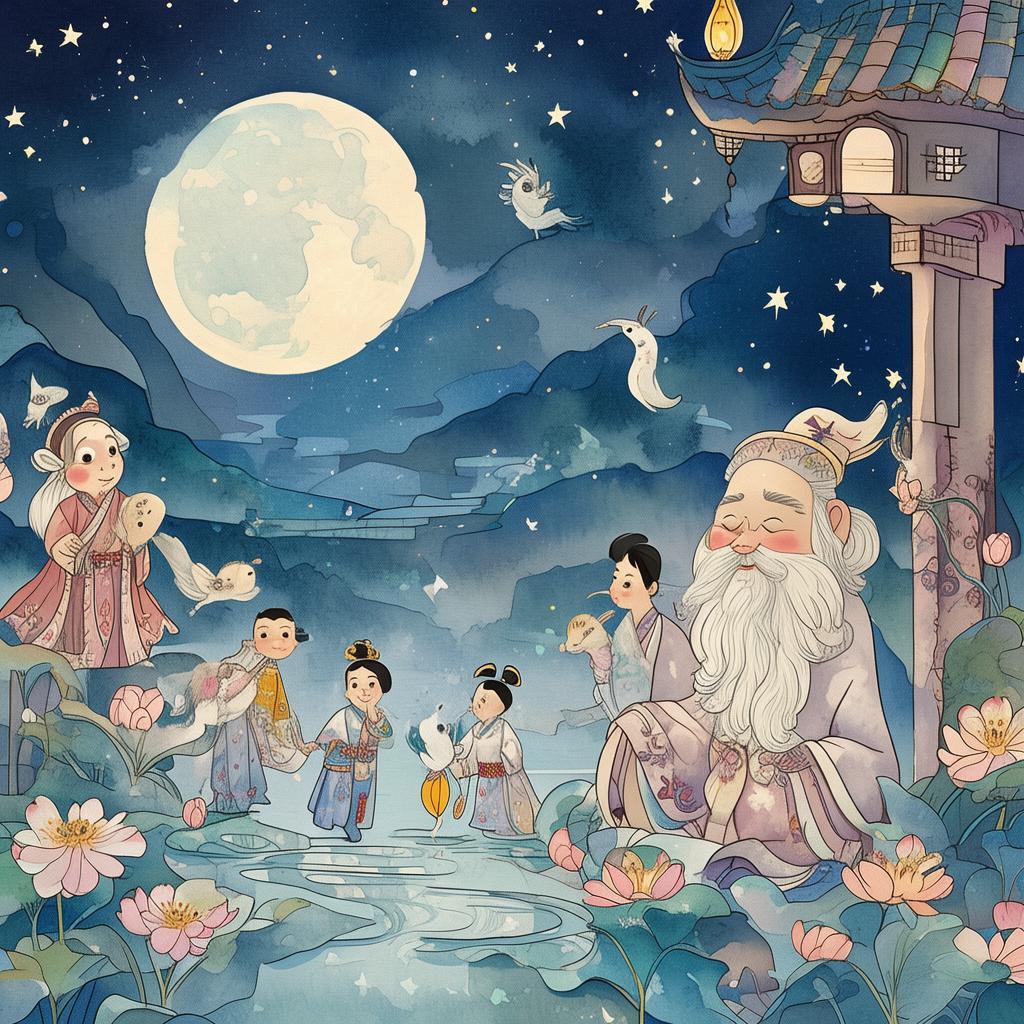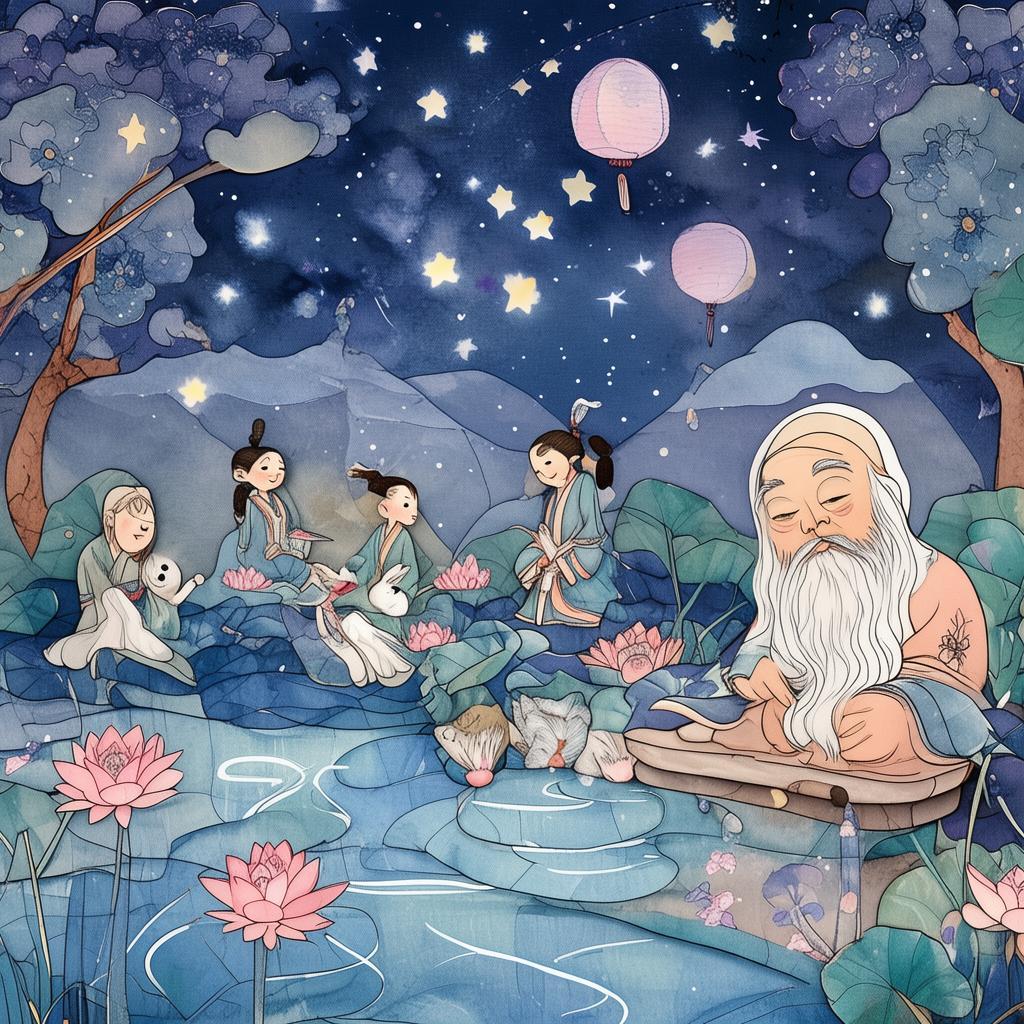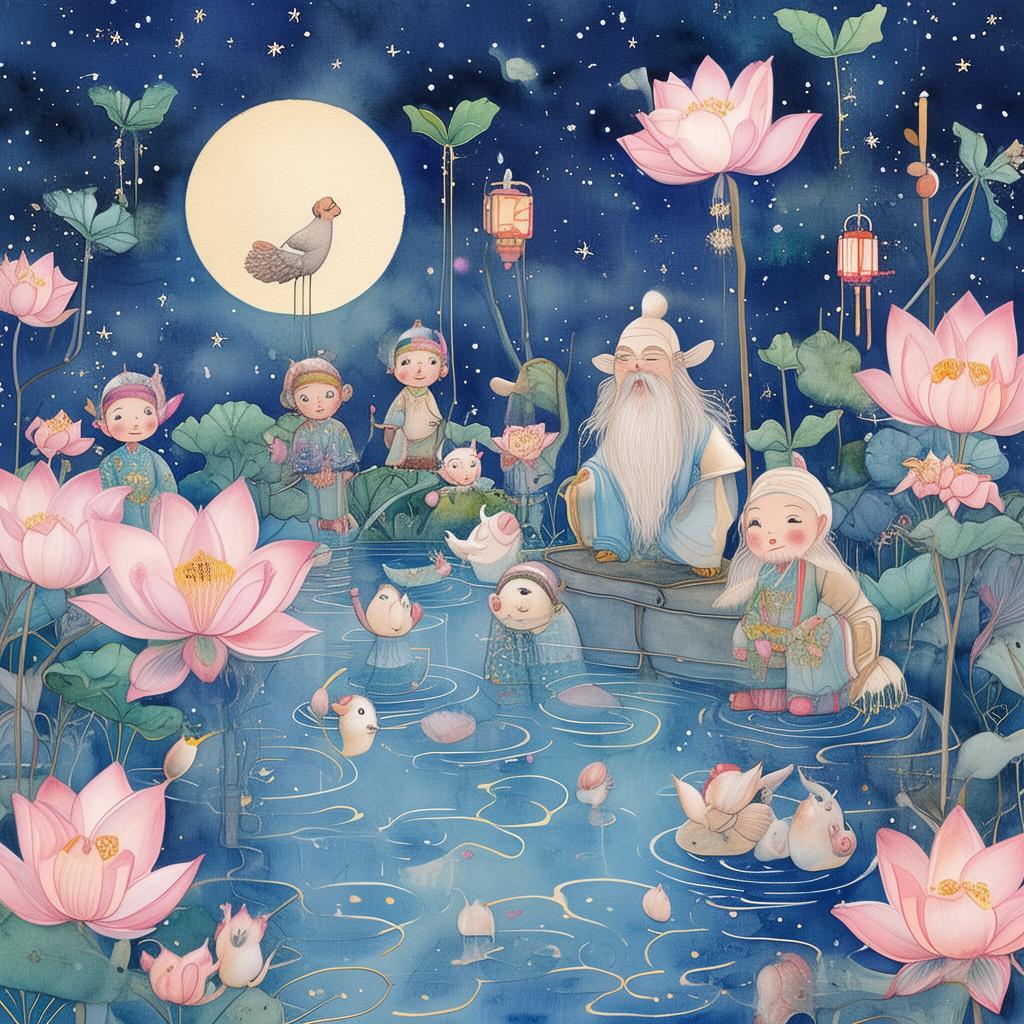The Whispering Lullabies of the Dying World
In the heart of the Dying World, where the sun barely dared to peek through the perpetual twilight, there lay a small village nestled between the whispering trees and the howling winds. The villagers spoke in hushed tones, their eyes often reflecting the shadows that danced around them. The children, though, were the ones who truly felt the weight of the world's end. For them, the night was not just a time for rest but a time when the echoes of the dying world would sing their lullabies.
One such child was Elara, a girl with eyes as deep as the night sky and hair that seemed to catch the last glimmer of light before it vanished into the darkness. Elara had always been different from the other children. She was fascinated by the lullabies that her grandmother would sing to her at night, songs that seemed to carry the weight of the world's sorrow.
"Elara, these lullabies are not just for sleep," her grandmother would say, her voice a soft echo against the night. "They are the whispers of the dying world, the last breaths of a world that once was."
As Elara grew older, she began to notice that the lullabies were changing. The once comforting notes now carried a haunting quality, as if the world itself was trying to warn them of something. The villagers grew restless, their sleep troubled by the night's whispers, and their days filled with a sense of dread.
One night, as the village elder was preparing to retire to his bed, Elara approached him with a question that had been gnawing at her for weeks.
"Grandfather, why do the lullabies change? Why do they grow so sad?"
The elder sighed, his eyes reflecting the shadows of the room. "Elara, the lullabies are the voice of the world itself. When they change, it is a sign that the world is changing. It is a warning, a call for help."
Elara's heart raced with a newfound determination. She knew that she had to do something, that the village's fate rested on her shoulders. She began to study the lullabies, to listen to the whispers, and to seek out the secrets hidden within the notes.
Days turned into weeks, and Elara's quest led her to the edge of the village, where the trees were older and the air was thicker with the scent of ancient magic. There, she found an old, weathered book, its pages yellowed with age and its cover cracked and worn. Inside, she discovered the true meaning of the lullabies.
The book spoke of an ancient curse, one that had been cast upon the world by a sorcerer who sought to live forever. The curse had brought darkness and despair, and it was only through the power of the lullabies that the world could be saved.
Elara realized that she was the key to breaking the curse. She had to sing the lullabies with the purest of hearts, the purest of intentions, and the purest of voices. She had to become the voice of the dying world, to sing the song that would bring it back to life.

The night of the great singing arrived, and Elara stood before the village, her heart pounding with fear and hope. She opened her mouth, and the lullabies began to flow from her lips, a melody that was both haunting and beautiful.
As the notes filled the air, the villagers joined in, their voices blending with Elara's to create a symphony that seemed to resonate with the very soul of the world. The shadows began to fade, the whispers to quiet, and the world started to breathe again.
In the silence that followed, Elara knew that she had succeeded. The lullabies had saved the world, and with it, her village. She had become the voice of the dying world, the one who had whispered the lullaby of a new dawn.
And so, as the first light of dawn crept over the horizon, Elara looked out over her village, a place that was once again filled with life and hope. She knew that the whispers of the dying world would never be forgotten, but they would no longer bring despair. Instead, they would be a reminder of the power of love, of hope, and of the lullabies that had saved the world.
And as the villagers woke to a new day, they whispered their thanks to Elara, the girl who had become the voice of the dying world, the one who had sung the lullaby of a new dawn.
✨ Original Statement ✨
All articles published on this website (including but not limited to text, images, videos, and other content) are original or authorized for reposting and are protected by relevant laws. Without the explicit written permission of this website, no individual or organization may copy, modify, repost, or use the content for commercial purposes.
If you need to quote or cooperate, please contact this site for authorization. We reserve the right to pursue legal responsibility for any unauthorized use.
Hereby declared.









